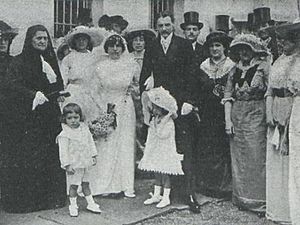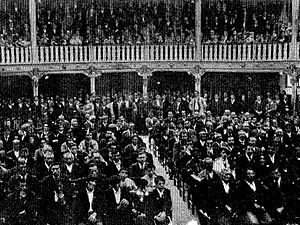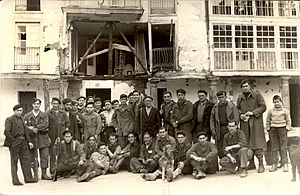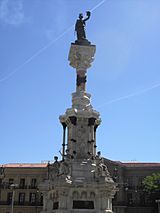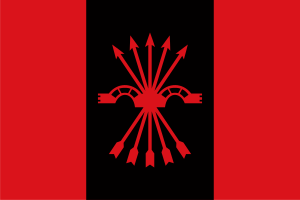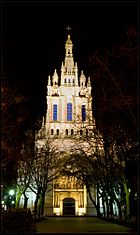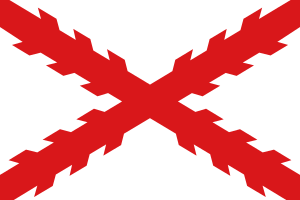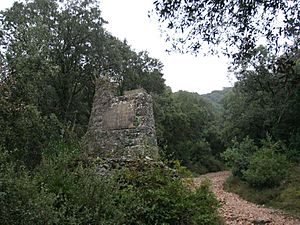Esteban de Bilbao Eguía facts for kids
Quick facts for kids
The Most Excellent
The Marquess of Bilbao Eguía
|
|
|---|---|
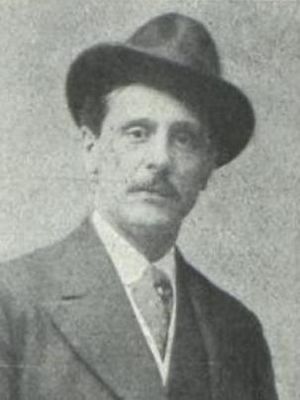
Pictured in 1916
|
|
| President of the Cortes | |
| In office 16 March 1943 – 29 September 1965 |
|
| Preceded by | Diego Martínez Barrio as president of the Republican Courts (1936-1939) |
| Succeeded by | Antonio Iturmendi Bañales |
| Minister of Justice | |
| In office 9 August 1939 – 16 March 1943 |
|
| Preceded by | Eduardo Aunós |
| Succeeded by | Luis Planas |
| Personal details | |
| Born |
Esteban de Bilbao Eguía
11 January 1879 Bilbao, Spain |
| Died | 23 September 1970 (aged 91) Durango, Spain |
| Political party | Comunión Tradicionalista, Falange Espanola Tradicionalista |
| Occupation | lawyer, politician |
Esteban de Bilbao Eguía (born January 11, 1879 – died September 23, 1970) was an important Spanish politician. He lived during the time when Francisco Franco was in charge of Spain.
Contents
Early Life and Education
Esteban Martín Higinio de Bilbao Eguía came from a middle-class Basque family. His grandfather, Manuel Bilbao, was a merchant. Esteban's father, Hilario Bilbao Ortúzar, became a doctor in Bilbao. His mother was María Concepción Matea de Eguía Galindez. Esteban was the oldest of six children. His family was very Catholic.
Esteban first went to school at Instituto Provincial in Bilbao. He later studied law and philosophy at the Jesuit university of Deusto in Bilbao. He also studied at the famous Universidad de Salamanca. He earned his PhD in law from Universidad Central in Madrid. In 1904, he started working as a lawyer in Bilbao. In 1913, he married María de Uribasterra e Ibarrondo. They did not have any children.
First Steps in Politics
Esteban de Bilbao Eguía became involved in the Carlist movement early on. The Carlists were a political group who supported a different royal family for Spain. By 1902, he was a strong Carlist leader in his home region of Biscay. He traveled and gave speeches with other important Carlist figures.
In 1904, he was elected to the Bilbao City Council. He was even named a deputy mayor for a short time. However, he was removed from his position. This happened because he protested against a Protestant minister being at an official city event. The government said he broke the constitution.
Bilbao was also very active in Catholic groups. He fought against laws that made Spain less religious. He spoke at many meetings and events. One famous event was the Acto de Zumarraga in 1910. He was put on trial three times for his speeches, but we don't know the results.
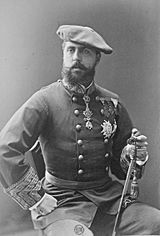
Within the Carlist movement, Bilbao was part of a new generation of leaders. These leaders were supported by the Carlist claimant, Carlos VII. In 1907, Bilbao ran for a seat in the Cortes (Spanish Parliament) in Vitoria. He lost because another Carlist candidate also ran, splitting the votes. He tried again in 1910 and 1914 but did not win.
Bilbao strongly supported Basque identity and local traditions, called fueros. He believed these were important parts of Spain. He spoke at the first Congreso de Estudios Vascos, which studied Basque culture. He wanted a Basque university to help restore Basque culture. He also showed interest in social issues, writing a paper called "La cuestion social" (The Social Question).
Parliamentary Career
In 1916, Esteban de Bilbao Eguía finally won a seat in the Cortes. He represented the Tolosa district in Gipuzkoa, a Carlist stronghold. He was re-elected in 1918. In Parliament, he was known as a strong speaker. He defended the Church and Traditionalist ideas.
During a split in the Carlist party, Bilbao stayed loyal to the Carlist claimant, Don Jaime. He helped write some of Don Jaime's statements. In 1919, he was elected to the Senate. He worked on laws about workers' unions and university independence. In 1920, he returned to the Cortes, representing Estella in Navarre.
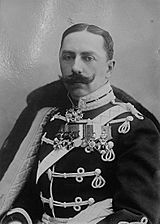
When Miguel Primo de Rivera took power in 1923, many Carlists hoped he would bring back a traditional monarchy. However, Don Jaime told his followers not to join Primo de Rivera's government. Bilbao did not follow this order. In 1924, he joined the new state party, Unión Patriótica. In 1926, he became president of the Biscay Provincial Council. He worked to keep the region's special economic agreement. In 1927, he joined the new quasi-parliament, Asamblea Nacional Consultiva. Because he joined these groups, Don Jaime removed Bilbao from the Carlist party. Bilbao then joined a different branch of Traditionalism.
He continued his work as a Catholic politician. He led the Biscay section of Acción Católica in the 1920s. He also tried to start a new Catholic political group in 1929, but it did not succeed.
The Second Republic
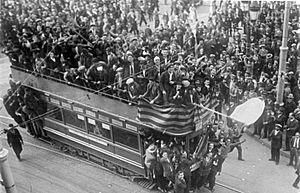
When the monarchy fell and the Second Spanish Republic began in 1931, Bilbao joined the united Carlist organization, Comunión Tradicionalista. He became the head of its Biscay section. He worked closely with the new Carlist claimant, Don Alfonso Carlos. Bilbao was open to making a deal with the Alfonsinos, another royalist group. He also joined the monarchist alliance, Acción Española.
Bilbao was involved in the Carlist military preparations. In 1931, he was in contact with a group that protected religious buildings. He was briefly held by authorities in October 1931 and exiled for two months in early 1932. He was also aware of a military coup attempt by General Sanjurjo. He was detained and tried twice for opposing the dissolution of the Jesuit order and secular schools.
In 1933, Bilbao was elected as a Carlist deputy from Navarre to the Parliament. He defended Navarre's traditional fueros but spoke against Catalonia's autonomy. In 1935, he joined the top Carlist executive body, the Council of the Comunión. He was part of a group that was even more against the Republic. He refused to run in the 1936 elections because he disliked Parliament.
During the Civil War
When the military uprising began in July 1936, Bilbao was at his summer home. He was arrested by Basque authorities. In September, he was exchanged for the mayor of Bilbao and went to the Nationalist zone. He joined the Carlist War Council and worked near Franco's headquarters.
In late 1936, the Carlists faced pressure from Francisco Franco. Franco wanted to unite all nationalist groups into one state party. Bilbao was part of discussions about this. He knew that Franco's new government would be strong and dictatorial. However, he felt that unification was necessary.
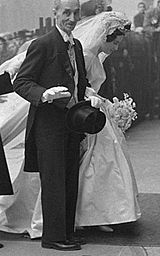
When Franco issued his Unification Decree in 1937, Bilbao chose to join the new party, FET. Because of this, the Carlist regent, Don Javier, removed him from the Comunión. Bilbao became one of the top Carlists in Franco's government. He was a member of the new FET executive in October 1939. He did not have much power in the party, but he was an excellent speaker. He helped gather support at public events in the Basque Country.
Minister of Justice
In 1938, Bilbao became president of a committee within the Ministry of Justice. This committee worked on creating new laws for Franco's government. In August 1939, he became the Minister of Justice. He held this position until 1943.
As Minister of Justice, Bilbao oversaw a very strict legal system. He helped create important laws like the Law of Political Responsibilities (1939) and the Ley de Represión de la Masonería y Communismo (1940). These laws were used to punish people who opposed the government. He also set up special courts, like the Tribunal Especial for repression.
During his time as minister, thousands of political prisoners were held in jails. Many also worked in labor detachments. Bilbao's ministry provided legal help for these systems. He also helped reverse laws from the Republic that allowed divorce.
While he had defended local fueros (special rights) in the past, it is not clear what he thought about Franco's government removing these rights from Biscay and Gipuzkoa. However, Bilbao said he defended Navarre's fueros and stopped plans to make the province less unique.
A High-Ranking Official
As Minister of Justice and a top lawyer for the government, Bilbao helped create the Ley Constitutiva de las Cortes (1942). This law set up the new Francoist quasi-parliament, the Cortes Españolas. In 1943, Franco chose Bilbao to be the speaker of the Cortes. He held this important position for 22 years, until 1965. During his time, about 4,000 laws were passed. As President of the Cortes, Bilbao had a very respected position, but he had little political power. He was meant to show that the regime had Traditionalist roots and broad support.
Bilbao served in Parliament for 35 years across different governments. This makes him one of the longest-serving Spanish Members of Parliament ever. His first and last days in Parliament were 49 years apart, which is also a record.
In 1947, he was a key author of the Law of Succession. This law officially made Spain a monarchy again. It also made Franco the Head of State for life. This law was not supported by the Carlist or Alfonsist royal families. Because of his role as Parliament speaker, Bilbao joined two new bodies: the Consejo del Reino and the Consejo de Regencia. The Consejo del Reino helped the Head of State, and Bilbao himself was its president. The Consejo de Regencia was a temporary group that would rule if Franco was absent or during a transition to a new leader.
Relations with Falangism
Esteban de Bilbao Eguía was always loyal to Franco's government. He is even credited with saying, "Francisco Franco, Caudillo de España por la gracia de Dios" (Leader of Spain by the grace of God). He never joined any plots or protests against Franco. His main goal was to keep the hardline Falangists from gaining too much power. He also quietly supported the idea of bringing back the monarchy.
In 1940, Ramón Serrano Suñer, a key figure in the Falange, proposed a law to give the Falange central power. Bilbao protested this plan. He said it was a "systematic interference of the party" in state affairs. Many monarchists and parts of the army agreed with him. As a result, the plan was stopped.
In 1942, Bilbao resigned as minister because of disagreements between Falangists and monarchists. However, Franco convinced him to stay. Soon after, the Begoña incident happened. This was a conflict between Carlists and Falangists. General Varela demanded that the Falange be controlled and the monarchy restored. Bilbao supported Varela. Franco managed to calm the situation, which led to Serrano's influence decreasing and Falangism becoming less important.
In 1956, Bilbao again led a group of monarchists, Catholic leaders, and military officials against a Falangist proposal. He compared it to "Soviet totalitarianism." This led to changes in the government and a shift of power to technocrats (experts in their fields).
By the late 1950s, Bilbao was getting older and became more of a symbolic figure. In 1965, he retired from all political roles due to his age. Even after retiring, he openly expressed his dislike for the Falangist influence in the Cortes.
Relations with Carlism
After he was removed from the Comunión, Bilbao had almost no contact with the main Carlist movement. In 1942, the Carlists said that those who had been removed could rejoin if they broke ties with the Falange. However, Bilbao was specifically excluded from this offer. Mainstream Carlists saw him as a traitor.
Bilbao did not support Don Juan, the Alfonsist claimant, as the Carlist leader. Instead, he supported Karl Pius Habsburg, who was called Carlos VIII. Bilbao cautiously supported this claim until Karl Pius died in 1953.
In the mid-1950s, the Carlists changed their approach to Franco's government from opposition to cautious cooperation. This brought Bilbao closer to the party. Younger Carlist activists, especially those around Don Javier's son, Carlos Hugo, wanted to use Bilbao's influence. Even though they saw him as a traitor, they invited him to join a new group in 1959.
Bilbao was likely not fully aware of the power struggles within the Carlist movement. In 1963, as the Cortes speaker, he sent a greeting to the annual Carlist gathering at Montejurra. This event was important for Carlos Hugo's rise to power. In 1969, as Juan Carlos was about to be named the future king, Bilbao said it would be unwise to make the same mistake twice. A year before he died, he supported Don Javier. Only one notable Carlist, José Luis Zamanillo, attended his funeral.
Images for kids
-
Carlos VII, a Carlist claimant.
-
Don Jaime, Carlist claimant.
-
The Republic was declared in 1931.
-
Don Javier, Carlist regent.
See also
 In Spanish: Esteban de Bilbao Eguía para niños
In Spanish: Esteban de Bilbao Eguía para niños
- Electoral Carlism (Restoration)
- Carlo-francoism
 | Emma Amos |
 | Edward Mitchell Bannister |
 | Larry D. Alexander |
 | Ernie Barnes |


